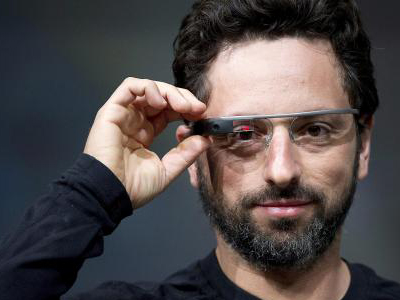Google Glass Updated with More RAM, Improved Battery
Google's annual developer conference kicks off a little bit later today and the keynote is expected to yield some pretty tasty treats. However, Google gave us a little taste of the good stuff last night when it announced that new models of Google Glass will ship with more memory. The search giant’s smart glasses will now ship with 2 GB of RAM as well as improved battery life. The current technical specifications for the Explore units include a Texas Instruments OMAP 4430 SoC (dual core 1.2 GHz), a 640x360 Himax HX7309 display, a 5-megapixel camera, WiFi 802.11b/g, Bluetooth, 12 GB of usable storage, ad a bone conduction audio transducer.
Of course, the aforementioned improvements to battery and RAM aren’t much use to those that already own a Google Glass unit, but software upgrades are easily applied to Explorer versions of the glasses and Google’s been working to improve Glass since the Explorer Program kicked off in April of last year. The company has been listening to Explorers’ feedback regarding the HMD and members have been asking for an easier way to frame photos as well as more Google Now cards, so Google is adding both of those highly-requested features this week (the new cards cover package delivery and the location of your parked car). Google also announced new Glassware including Runtastic, The Guardian, Duolingo, Zombies, Run!, Shazam, and Livestream.
No doubt we’ll be hearing a lot more about Google Glass in just a few hours’ time, so stay tuned for more from Google I/O. We’re also hoping for some new info on Project Tango, Projet Ara, and Android Wear as well as a new version of Android and possibly a new Nexus tablet. It's going to be an exciting morning!
Follow Jane McEntegart @JaneMcEntegart. Follow us @tomshardware, on Facebook and on Google+.
Get Tom's Hardware's best news and in-depth reviews, straight to your inbox.

Jane McEntegart is a writer, editor, and marketing communications professional with 17 years of experience in the technology industry. She has written about a wide range of technology topics, including smartphones, tablets, and game consoles. Her articles have been published in Tom's Guide, Tom's Hardware, MobileSyrup, and Edge Up.
-
InvalidError Reply
As a smartphone or tablet extensions, smart glasses could be fairly useful. As primarily stand-alone devices though, I have a hard time imagining myself using a device mostly with voice commands and head gestures. With eye-tracking navigation, they would become a fair bit more practical as stand-alone but it would also eat batteries like nobody's business.13581275 said:I hope these things will just be a fad
I have no doubt smart glasses are here to stay but we are still 5+ years away from this achieving truly mainstream functionality and pricing. -
InvalidError Reply
Most likely a slightly bigger battery, a more power-efficient SoC re-spin, an updated VRM to go with that and a handful of software tweaks. It has been nearly two years since the original Glasses prototypes so hardware is bound to change a little even if only to keep up with old part models getting superseded by slightly improved drop-in successors before the old parts get discontinued.13584424 said:So does it have an improved battery , or just improved battery life? -
gm0n3y ReplyI hope these things will just be a fad
Tech like this is, in my opinion, exactly where technology is heading. Once augmented reality really gets going these are going to difficult to live without. Obviously the first few generations are going to be a bit rough and I'm not convinced that voice commands are the best way to go. However, give it another ~10 years and these will change the world. It took.
The first public mobile phone network with widespread use was in the 1940s and it wasn't until the 70s that truly mobile phones (i.e. handheld) phones came out. Even then it wasn't until the 1990s that mobile phones really took off. Given that technological progress keeps accelerating, I'd think that we have 5-10 years until they are actually really useful and 10-15 years before they become mainstream. -
InvalidError Reply
Accelerating? Mobile SoCs still have a long way to go to catch up with traditional desktops in terms of raw processing power and the processing power growth on SoCs is already starting to taper off, the amount of RAM in mainstream devices has been stagnating in the 1-2GB range for the past two years, mainstream internal storage has been stuck at 16GB and I'm sure there are a few other things that are stuck in the past too. High-end devices from 2014 are for the most part the same as their 2013 counterpart except for updated parts.13584514 said:Given that technological progress keeps accelerating
While things on mobile are still moving forward faster than desktop (mostly because they still have a huge gap to close), mobile computing is not advancing anywhere near as fast as it did 2-5 years ago.
The only thing on mobile that is growing ridiculously fast is pixel densities beyond human sight which seem like completely unnecessary waste of processing and battery power to me. -
therealduckofdeath ReplyMicrosoft said there is no update 3
The wonders of the broken layout on Tom's Hardware... :D
